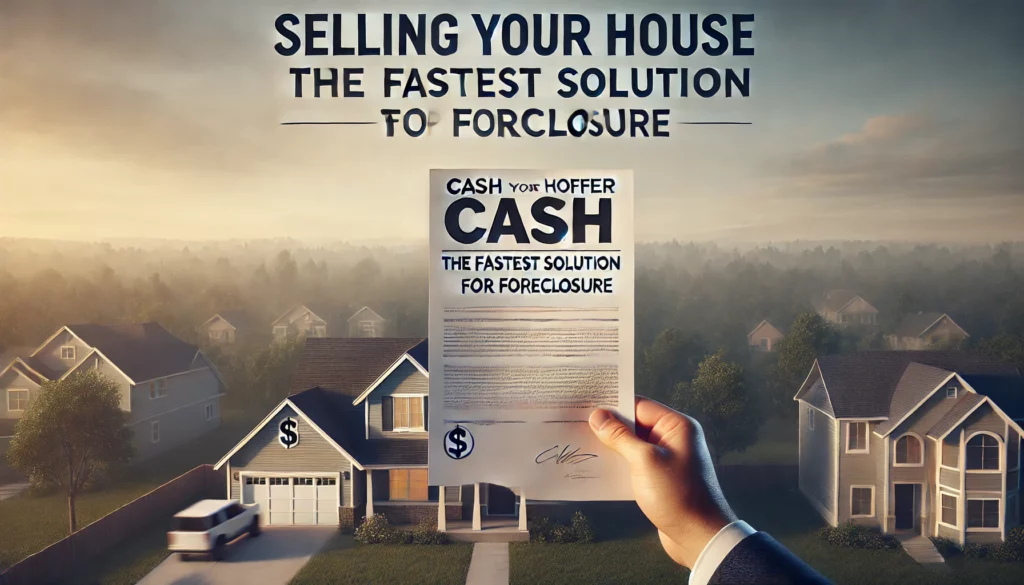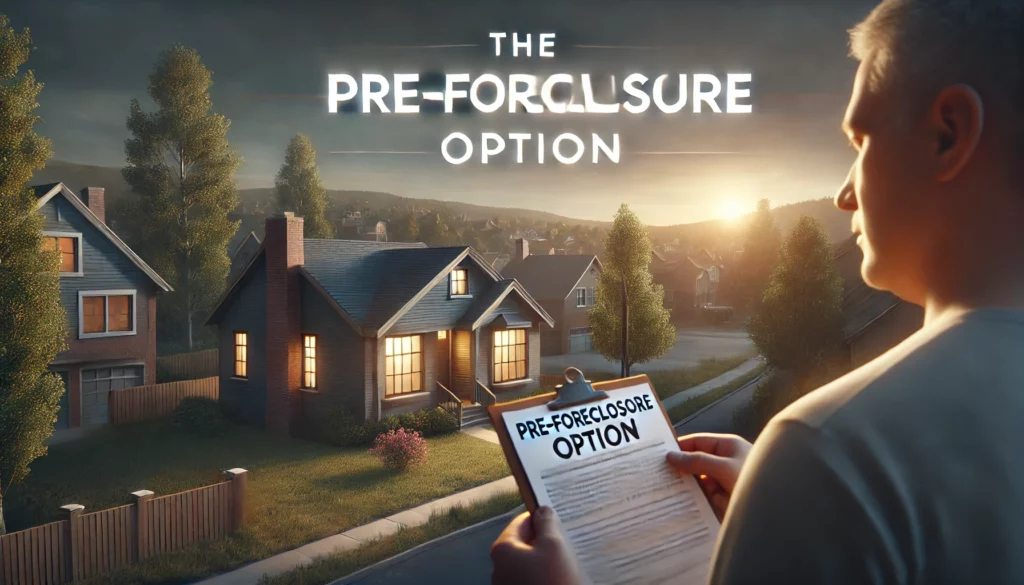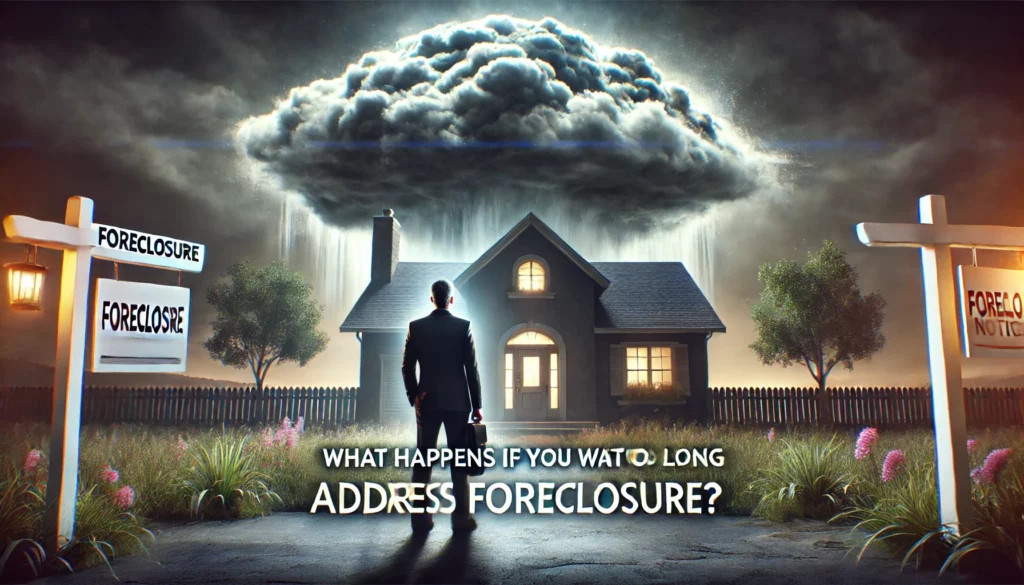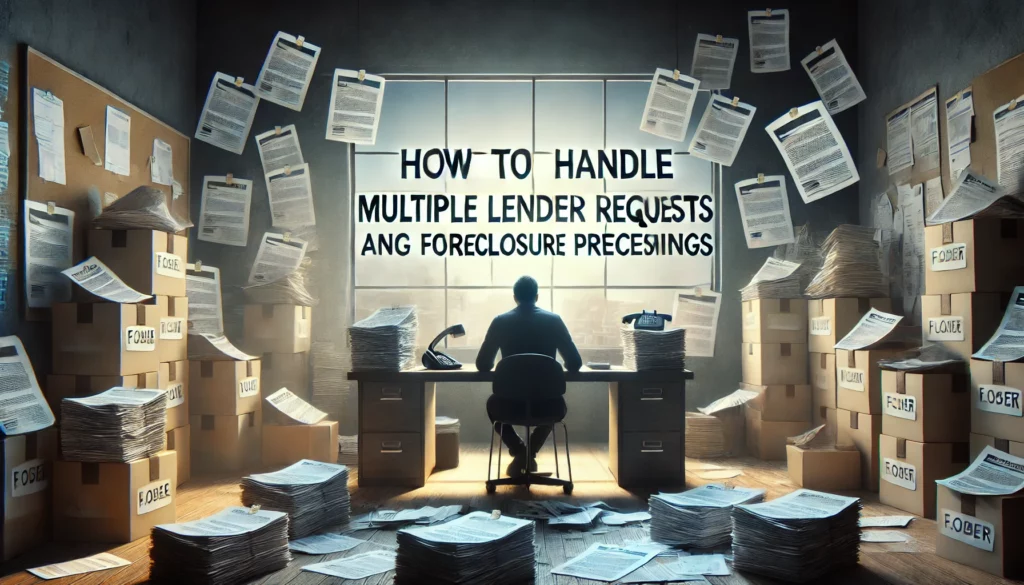Introduction
If you’ve found yourself searching for how to stop the bank from foreclosing on your house, you’re likely in a state of financial distress, feeling overwhelmed by the looming threat of losing your home. You may be facing mounting bills, missed mortgage payments, or other financial hardships that have put you in this difficult position. The emotions running through your mind could range from fear and frustration to uncertainty and confusion about your options. You may be wondering if there is still a way out, or if foreclosure is an unavoidable fate.
The reason you’re searching for answers is clear—you need to understand your options and quickly figure out how to take control of your situation. You may have heard of alternatives like loan modification, short sales, or even bankruptcy, but you’re unsure about which path to take. You’re also looking for a clear, actionable plan that can help you prevent foreclosure, preserve your credit, and most importantly, avoid losing your home. This blog is here to answer those questions, provide clarity, and guide you through your options, ultimately showing you why selling your house for cash might be your best choice in this tough situation.
Understanding Foreclosure and Its Consequences

Foreclosure is one of the most devastating financial events a homeowner can face. It’s not just about losing your home; it can also severely damage your credit, making it difficult to secure future loans. Foreclosure occurs when you fail to make your mortgage payments over a period of time, and the lender takes legal action to repossess your property. This process typically begins after several missed payments and can result in the auction of your home to recover the debt.
Why Foreclosure Is Detrimental
When the bank forecloses on your home, the consequences extend far beyond losing the property. Foreclosure damages your credit score by as much as 200 points, depending on your prior credit history. The damage to your credit can take years to recover from, and it may affect your ability to secure loans, rent a home, or even obtain certain jobs.
Additionally, the costs associated with foreclosure can be high. According to a report by the Federal Reserve, the average cost to a homeowner facing foreclosure, including legal fees and auction costs, can reach upwards of $5,000. And after the property is sold, you might still owe money to the lender if the sale doesn’t cover the total amount of your mortgage—this is called a “deficiency judgment.”
The Road to Avoid Foreclosure
In order to stop the bank from foreclosing on your home, it’s crucial to act quickly. There are several options available, including loan modification, forbearance, short sales, and bankruptcy. Each option has its own set of pros and cons, but the most effective way to prevent foreclosure may involve selling your home for cash. By doing so, you can avoid the long, stressful process of foreclosure while still walking away with enough money to resolve your financial situation.
For more information on how to navigate these foreclosure alternatives, check out Understanding the Foreclosure Process In Virginia.
Selling Your House for Cash: The Fastest Solution to Foreclosure
If you’re facing the possibility of foreclosure, one of the fastest and most reliable ways to stop the bank from taking your home is by selling your house for cash. This solution offers numerous benefits that can help you avoid the negative consequences of foreclosure.
Quick Closing Times

Selling your house for cash allows you to bypass the traditional real estate process, which can take months. In contrast, a cash sale typically closes in 7-14 days, depending on your circumstances. This speed can be crucial if you’re trying to avoid foreclosure and the associated legal proceedings.
No Repairs Needed
Another major advantage of selling your house for cash is that you don’t need to worry about making repairs or improvements. Traditional home sales often require you to invest money into fixing up your property, but cash buyers are willing to purchase homes as-is, saving you both time and money.
No Realtor Fees or Commissions
With a cash sale, you won’t have to worry about paying real estate agent commissions, which can range from 5-7% of the sale price. This can save you thousands of dollars, which is especially important if you’re in financial distress.
By choosing to sell your house for cash, you can bypass the entire foreclosure process and move on with your life. If you’d like to explore how to sell your home for cash, read more about Sell My Woodbridge VA House in Foreclosure?.
How a Short Sale Compares to Foreclosure
A short sale is another potential solution for homeowners facing foreclosure. It occurs when the homeowner sells their property for less than the remaining mortgage balance, and the lender agrees to forgive the difference. While this can help avoid foreclosure, it comes with its own set of challenges.
The Short Sale Process
The short sale process involves negotiations with your lender, which can be time-consuming and complicated. It often takes several months to get approval, and during that time, the lender may continue to pursue foreclosure proceedings. Additionally, you may still face tax consequences, as the forgiven debt could be considered taxable income.
The Drawbacks of Short Sales
While a short sale can help you avoid foreclosure, it doesn’t guarantee that you’ll walk away unscathed. Your credit score will still take a hit, though not as severely as with foreclosure. A short sale can lower your score by 100-150 points, while foreclosure can cause a drop of 200 points or more.
For more on the pros and cons of foreclosure alternatives, check out Short Sale vs. Foreclosure – What’s the Difference?.
The Pre-Foreclosure Option

Another option to consider when trying to stop foreclosure is pre-foreclosure. This occurs before the official foreclosure process begins, giving you more time to find a solution. During this phase, you may have the opportunity to work out a loan modification or sell your home.
What Is Pre-Foreclosure?
During pre-foreclosure, you will have received a Notice of Default from your lender, indicating that you’ve missed a significant number of payments. While this stage gives you some time to act, it’s important not to wait too long to take action. Selling your house for cash during this phase can help you avoid the lengthy foreclosure process and the damage it does to your credit.
If you’re unsure about what pre-foreclosure means and how it could impact your home, learn more in our post on What is a Pre-Foreclosure in Silver Spring MD?.
Understanding Foreclosure Notices and What They Mean for You
A Foreclosure Notice of Default is an official notice from your lender stating that you’ve fallen behind on payments and are at risk of foreclosure. This notice serves as a warning that the bank will begin legal action to repossess your property if you don’t take immediate steps to resolve the situation.
The Impact of a Notice of Default
If you receive a Notice of Default, it’s important to understand that time is of the essence. This notice doesn’t immediately result in foreclosure, but it sets the wheels in motion for the bank to take action. Ignoring it or delaying can result in the bank moving forward with foreclosure proceedings.
How to Respond to a Notice of Default
There are a few ways to respond to a Notice of Default, including loan modification, forbearance, or even selling your house for cash. While other options may offer temporary relief, selling your house for cash is the fastest and most effective way to stop foreclosure and move on.
For more on handling foreclosure notices, check out Foreclosure Notice of Default in Washington DC – What is It?.
How to Negotiate a Loan Modification with Your Lender
If you’re in danger of foreclosure but want to avoid selling your home, one option to consider is negotiating a loan modification with your lender. A loan modification involves changing the terms of your existing mortgage to make it more affordable, such as lowering your interest rate, extending the loan term, or even reducing the total balance owed.

What Is Loan Modification?
A loan modification is different from refinancing, as it modifies the existing loan rather than replacing it with a new one. Typically, your lender will require you to provide financial documentation and show evidence of your financial hardship. The lender may also want to see that you’ve made a few partial payments before agreeing to a modification.
The Benefits and Drawbacks
One of the benefits of a loan modification is that it allows you to keep your home while lowering your monthly payments. This can provide much-needed relief if you’re struggling to make mortgage payments but still want to stay in your home.
However, it’s important to understand that a loan modification may not be a guaranteed solution, and there are risks involved. Some lenders are unwilling to offer loan modifications, and even if they do, they might not provide terms that are favorable enough to make your mortgage affordable. In many cases, homeowners who don’t qualify for loan modifications still end up facing foreclosure.
If you’re unsure about whether a loan modification is right for you, or if it’s too late to avoid foreclosure, learn more about How to Avoid Foreclosure in Maryland.
How Bankruptcy Can Affect Foreclosure
Bankruptcy is another option that homeowners sometimes consider when they are at risk of foreclosure. Filing for bankruptcy can provide a temporary solution by halting foreclosure proceedings, but it’s important to understand the long-term implications before pursuing this route.
Chapter 7 vs. Chapter 13 Bankruptcy
There are two main types of bankruptcy that homeowners might file for: Chapter 7 and Chapter 13. Chapter 7 bankruptcy involves liquidating your non-exempt assets to pay off your creditors, which often leads to the foreclosure of your home. Chapter 13, on the other hand, involves a repayment plan that lasts for three to five years, giving you time to catch up on missed payments and avoid foreclosure.
Bankruptcy’s Effect on Foreclosure
While bankruptcy can temporarily stop foreclosure through an automatic stay, it doesn’t always prevent it in the long term. In Chapter 7, your home may be sold to satisfy other debts, while Chapter 13 allows you to keep your home as long as you stick to the repayment plan. However, bankruptcy will severely damage your credit, and you may still face financial challenges once the process is over.
If you’re uncertain whether bankruptcy is the right option for you, check out The American Bankruptcy Institute (ABI) for a detailed resource on bankruptcy types, the effects on foreclosure, and tips for managing your financial future post-bankruptcy.
What Happens If You Wait Too Long to Address Foreclosure?

Waiting too long to address a potential foreclosure can lead to serious consequences, not just in terms of losing your home, but also the financial impact of your credit score, and the emotional toll it takes. Many homeowners delay addressing foreclosure due to fear, shame, or uncertainty, but this can make the situation far worse in the long run.
The Risks of Waiting
One of the primary risks of waiting too long is the increased amount of debt and fees that accrue while the foreclosure process is in motion. Interest and penalties continue to add up, and your lender may pursue additional legal action, leading to higher costs that are harder to manage.
Additionally, the longer you wait, the fewer options you’ll have available. Your credit score will take a significant hit, which could prevent you from qualifying for other types of assistance, such as a loan modification, or even a short sale.
Why Quick Action Is Key
The key to avoiding the most damaging aspects of foreclosure is taking action quickly. The sooner you start exploring your options, such as selling your house for cash, the better your chances of minimizing damage to your finances and your credit. A quick sale can help you get out from under your mortgage, avoid a deficiency judgment, and move on with your life.
If you want to explore more about the different options available, check out the Consumer Financial Protection Bureau (CFPB), which provides valuable foreclosure prevention tips and guidance on managing your financial challenges.
How Selling for Cash Can Help You Avoid Deficiency Judgments
One of the most significant concerns for homeowners facing foreclosure is the potential for a deficiency judgment. This occurs when the sale of your home doesn’t cover the remaining balance of your mortgage, and the lender seeks to collect the difference from you. While this is common in foreclosure situations, selling your house for cash can help you avoid this financial burden.
What Is a Deficiency Judgment?
A deficiency judgment is a legal ruling in which the lender holds you responsible for paying the difference between what your home sells for and the remaining balance of your mortgage. For example, if your mortgage balance is $250,000 but your home sells for only $200,000 at auction, the lender can pursue a deficiency judgment for the $50,000 difference.
Avoiding Deficiency Judgments with Cash Sales
When you sell your house for cash, you typically negotiate a fair price for your property. If your cash sale covers the mortgage balance, you can avoid the possibility of a deficiency judgment. Even if your sale doesn’t fully cover the balance, cash buyers may be willing to work with you to settle the remaining debt.
By selling your home for cash, you can bypass the lengthy foreclosure process and walk away without the added burden of a deficiency judgment. To learn more about how a cash sale can help you, check out Foreclosure in Washington DC.
How to Handle Multiple Lender Requests and Foreclosure Proceedings

If you have more than one mortgage or lien on your property, dealing with multiple lenders can complicate the foreclosure process. Many homeowners who have second mortgages or home equity lines of credit (HELOCs) face additional challenges when trying to avoid foreclosure.
The Challenge of Multiple Lenders
Each lender or lienholder has a different set of rules, interests, and priorities. When foreclosure proceedings begin, the first lender typically gets paid first, but the second lender may still have a claim on the property. In some cases, the second lender may not be willing to negotiate, and the homeowner may find themselves in a difficult position.
The Role of a Cash Buyer in Complex Foreclosure Situations
In these complicated situations, working with a cash buyer can help you streamline the process. Cash buyers often have the flexibility to deal with multiple lenders and negotiate on your behalf to clear liens and settle debts. This means you can sell your property quickly, resolve any outstanding financial issues, and avoid the prolonged and stressful foreclosure process.
The Final Decision: Sell or Foreclose?
Ultimately, the decision to sell your home or go through with foreclosure is yours to make. However, selling your home for cash offers several key advantages over foreclosure. It allows you to avoid the lengthy legal process, protect your credit, and walk away with cash to resolve your financial issues. On the other hand, foreclosure can leave you with lasting financial damage and emotional stress.
At Local Home Buyer, we specialize in helping homeowners who are facing foreclosure by offering fast, fair cash offers for their properties. By selling your home to us, you can skip the traditional selling process and avoid the devastating consequences of foreclosure. Our team understands the urgency and can close on your home in as little as 7 days, providing you with the peace of mind you need during this challenging time.
If you’re ready to explore your options and find a solution tailored to your situation, contact us today. We’re here to help you stop foreclosure and move forward with confidence.

